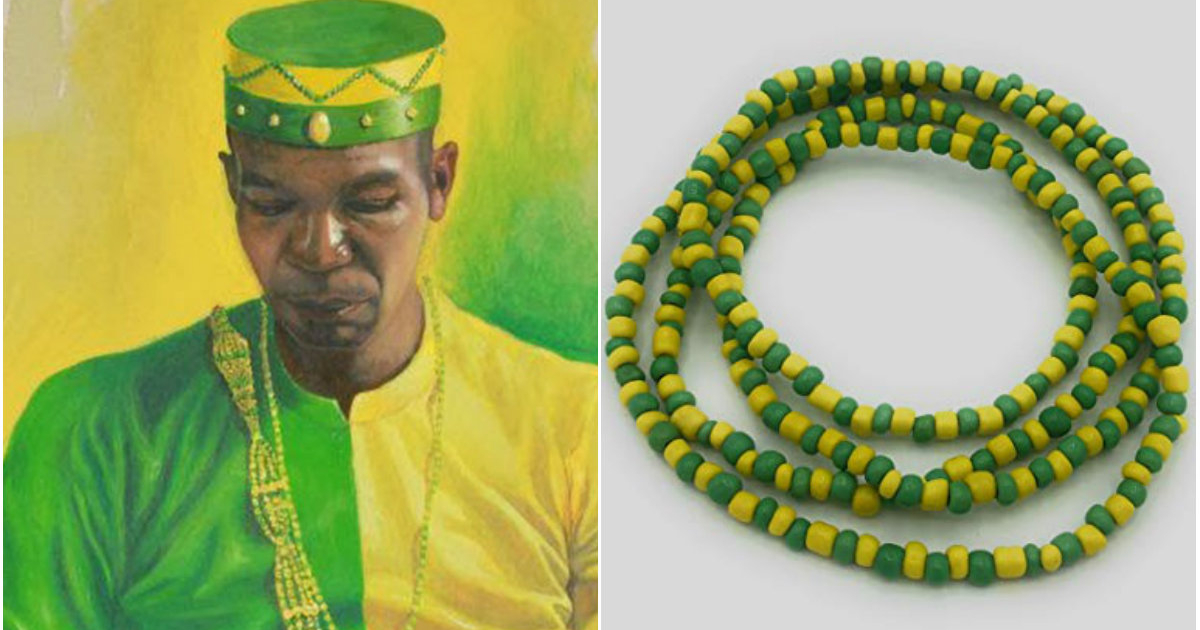
On October 4th, devotees of the Yoruba religion celebrate Orummila, the African god who is syncretized with Saint Francis of Assisi. For Cubans who trust in his messages, he is a symbol of wisdom, resolution, and peace.
Orunmila, Orula, the wise diviner.
The Yoruba say that when Oludumare (God) created the universe, Orunmila was the silent witness who accompanied Him, which is why he knows the fate of all things and all living beings in this world.
Orula is a Major Orisha. He received a magical board from his brother Changó, crafted from the wood of a ceiba tree, and learned to interpret the secrets of Ifá, the supreme oracle through which he communicates with earthly beings.
It can influence the most adverse outcome.
But not everyone is granted the joy of understanding their presence. Good babalawos spend many years studying the literary corpus of Ifá to learn how to interpret the messages of the oracle.
Many Cubans have experienced that mystical communication established with it, finding answers to problems, warnings of danger, and pathways to solutions.
Orula, the green and the yellow
The Idè or Ildè, that green and yellow bracelet worn by many Cubans, is not a trend. There are several patakies that tell the story of this attribute, and while they differ, they all convey the relationship or pact between Orula and Death.
The story speaks of life, represented by the green of the plant that sprouts from the earth; and of death, manifested in the yellow leaves that fall from it each day. It is a representation of a cycle in which we are all interconnected, even in our differences.
Knowing the destination doesn’t always feel good.
Many people wish to know their future, not realizing that it is a heavy burden that not everyone is prepared to bear. It requires wisdom, maturity, and a pure soul, both to confront it in the physical world and on the spiritual plane.
Knowing what future challenges lie ahead and how to overcome them is a closely guarded secret. Approach Orula only when you have the maturity to understand your mistakes, accept future challenges, and learn your lesson.
Frequently Asked Questions about Orula and Yoruba Religion in Cuba
Who is Orula in Yoruba religion?
Orula, also known as Orunmila, is a major orisha in the Yoruba religion, revered for his wisdom and divination abilities. He is a witness to destiny, having been present at the creation of the universe according to Yoruba beliefs.
How is Orula Day celebrated in Cuba?
On October 4th, Cuban devotees celebrate Orula with rituals and offerings. It is a day to seek guidance and solutions through his wise advice, communicated through the Ifá oracle.
What does the green and yellow bracelet symbolize in Yoruba religion?
The green and yellow bracelet, known as Idè or Ildè of Orunmila, symbolizes life and death, representing the natural cycle of existence. It is an attribute that carries the protection of Orula.
What is Orula's relationship with other religious figures in Cuba?
In Cuban religious syncretism, Orula is associated with Saint Francis of Assisi in the Catholic religion. This fusion of beliefs allows devotees to find similarities and points of connection between the two traditions.
Why is knowing one's destiny considered a challenge in Yoruba religion?
Understanding the destination involves a responsibility and maturity that not everyone is ready to embrace. Wisdom and spiritual strength are essential to confront the challenges that the future may hold.
Filed under:






